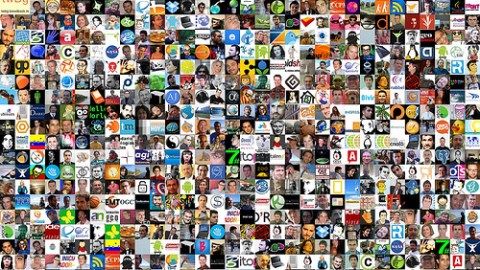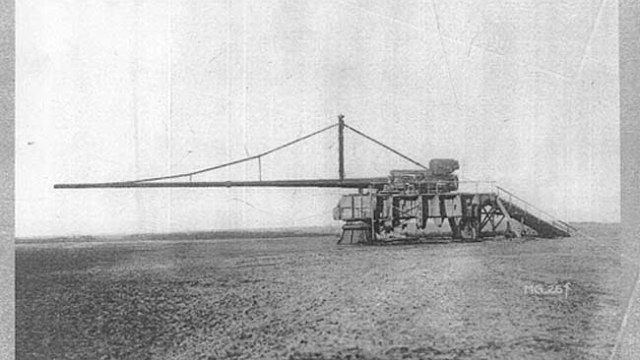Who Owns Your Twitter Followers?

Who owns the Twitter followers you accumulate while working for an employer? This is the question under consideration in new lawsuit filed by Phonedog.com against former employee Noah Kravitz. Whether the courts will rule correctly on this question remains to be seen. But in my mind, with rare exceptions, Twitter followers belong to the person who owns the account, not that person’s employer.
My position is based on two considerations. The first is a principle of ownership in the social media space. The second is a principle of best practices.
In the case at hand, Mr. Kravitz had a Twitter account called @Phonedog_Noah. He created the account while at the company and was given permission (allegedly) by the company to keep the account when he left in exchange for occasionally posting on behalf of Phonedog. He used the account to tweet a combination of personal and work related posts. If this is true, then the case is simple. Kravitz owns the followers.
If you have ever engaged with @ComcastCares (the cable company’s customer service on Twitter), you have met one of the many @ComcastJoe’s working for the company. These staff are explicitly using their accounts to provide customer service to Comcast customers on Twitter. People generally follow these guys in order to have a private conversation with them about their technical support issues. If “Joe” leaves Comcast, it makes sense that Comcast would keep and reassign that account to another customer service agent.
But many people include the name of their company in their Twitter name in order to self-identify with their employer. Some of my colleagues use the convention @FirstNameCAP to indicate they work at the Center for American Progress, but that was their own choice. When they leave, they would naturally change the name to something else.
Unless the account was created to serve a specific role for a company or organization, it is hard to say that the account belongs to anyone but the person who uses it.
Take for example @LeaderBoehner. When Rep. John Boehner was the House Minority Leader, he maintained two Twitter accounts: @JohnBoehner and @LeaderBoehner. @LeaderBoehner was the account he used to talk in his capacity as Republican Leader. When he became Speaker of the House, he did not give @LeaderBoehner’s followers and account to the new Republican Leader, Eric Cantor. he changed the name on the account to @SpeakerBoehner. Those followers were his, not the offices.
The president has two Twitter accounts: @BarackObama and @WhiteHouse. In this case, @WhiteHouse belongs to the institution and should be taken over by the next president when Obama leaves office. If he had created an account called @PresidentObama, it would be his to keep.
The principle of ownership on social media is dependent on the expectations of the followers. A follower of @WhiteHouse does not have a reasonable expectation that he/she is following a specific president. But if they had followed @PresidentObama, it would be outside their expectations to have that account transferred to the next president.
In the case of @Phonedog_Noah, it has everything to do with the expectations of the followers. Were they following Noah or were they following a Phonedog staff person who happened to be named Noah. That is the key to the court’s forthcoming decision.
With respect to best practices, however, this case looks very different. A smart company is better served by creating specific branded Twitter accounts that they own and keep through successive managers and letting its staff create, own, and keep their own accounts (with the exceptions that match the @ComcastJoe example above). This allows the company to benefit from the personal relationships its staff create. A smart company will work to recruit followers of staff to the brand channel to ensure some continuity of audience after the staff moves on.
Social media is inherently about social relationships. And social relationships are inherently about people interacting with people. Given this, even a brand Twitter account should be managed by a person and that person should be allowed to let a bit of his/her personality come through. This makes the channel more engaging.
Staff accounts, on the other hand, are best viewed as the personal property of the staff. The use of these channels on behalf of the company is a voluntary gift from the employee to the employer. If the employee wants to give all or most of the content of his/her Twitter channel over to the employer, the employer should be grateful. Treating it this way will bestow the greatest value to the employer and motivate the employee to grow their list in the process.
If and when employees leave employers, their Twitter account and followers go with them. A smart employer will see this as a great opportunity. This now former employee becomes a third party influencer on behalf of the employer. This extends the network of allies for the employer and will help enhance the employer’s reputation, reach and influence. All things worth having on social media.
The underlying concept to all of this is who owns the relationship. A list of followers is valuable only to the person or organization that has the relationship. By analogy, I lost my iPhone back in May. On it were 5,000 contacts. Whoever found my phone could have used the contacts to do a lot of cold calling, but just having the contact info does not give them the relationships. The people being called won’t know or trust the caller. And caller won’t have much insight into the people they are calling.
With respect to the second question in the Kravitz lawsuit (how much are Twitter followers worth), they are clearly worth more if you have a relationship with them than if you do not. So from a best practices perspective, employers will get more value from employees who own the relationships with their followers than they will from those that do not.
In the case of Phonedog.com vs. Noah Kravitz I rule in favor of Noah Kravitz.
_______________
UPDATE/CORRECTION: When he was Republican Leader, John Boehner created the account @GOPLeader. When we became Speaker, he changed the name of the account to @SpeakerBoehner, keeping the followers and handing the @GOPLeader name on to his successor. I think this approach make a lot of sense. The “property” is the name, which stays with the office. The “relationships” are the followers, which moves on with the person.
This is completely parallel to what Kravitz did when he changed the name after he left Phonedog.com.




